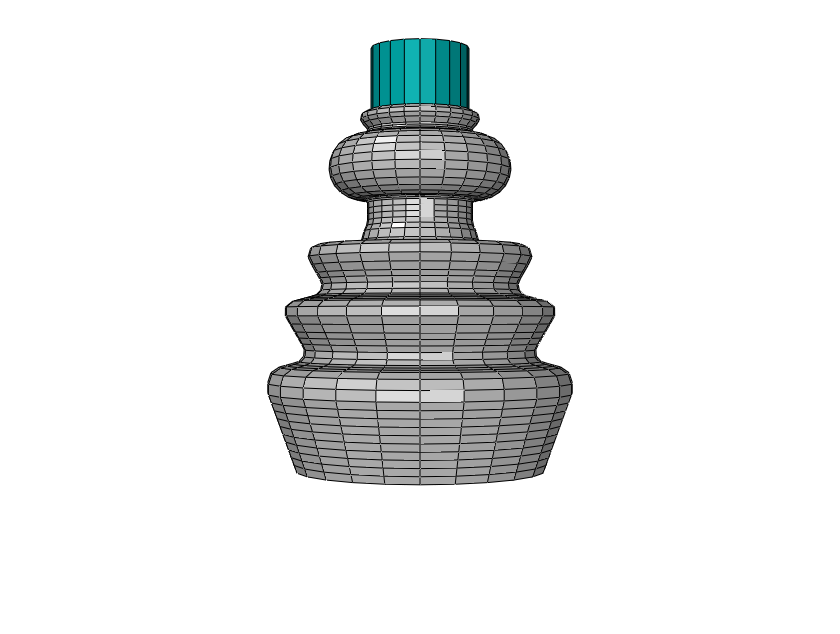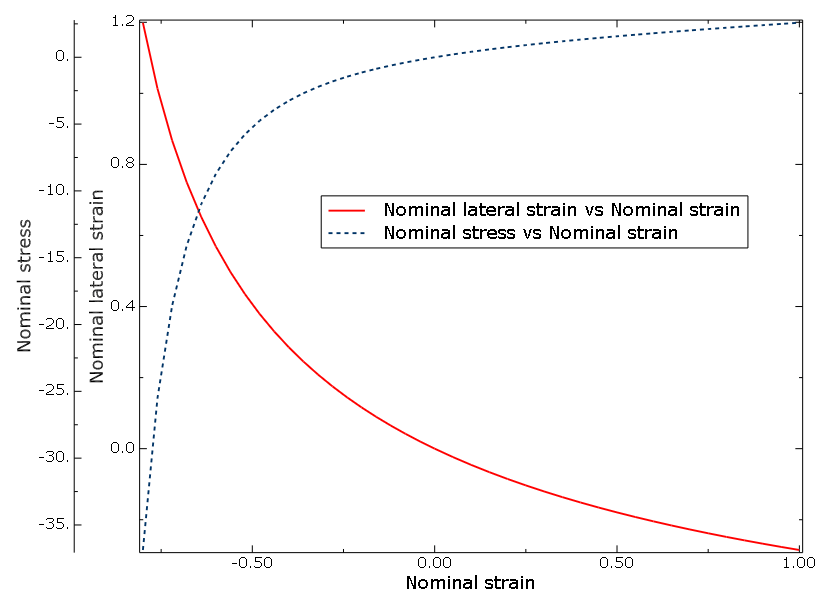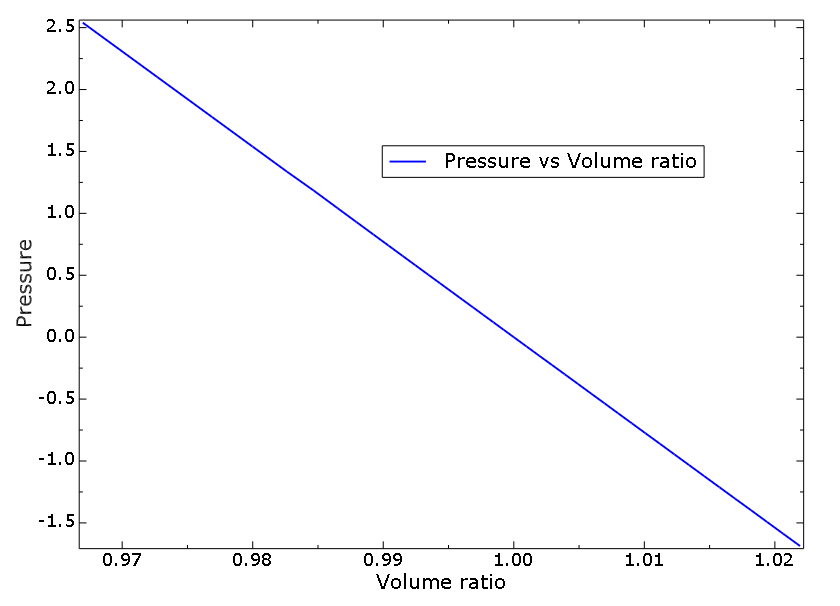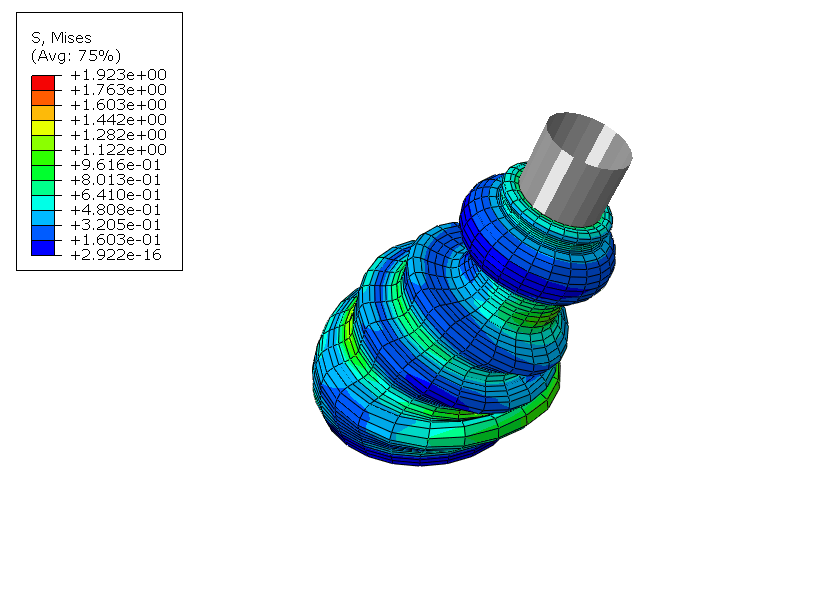Valanis-Landel hyperelastic model | ||
| ||
Products Abaqus/Standard Abaqus/Explicit
The Valanis-Landel model is an isotropic hyperelastic model in which the strain energy function is determined numerically from test data that you specify. The model can reproduce both compressive and tensile test data exactly. Previously, you could define the volumetric response of the model either by specifying a constant value of the Poisson’s ratio or by providing lateral strain information from a uniaxial test. This enhancement allows you to optionally specify volumetric test data to calibrate the volumetric response of the model. This is convenient in cases when volumetric test data and uniaxial test data without lateral strains are available.
In the example below, the Valanis-Landel material is used to model the rubber sealing in the boot seal assembly shown in Figure 1. The shaft is modeled as a rigid body, and contact is specified between the shaft and the inner surface of the seal. The shaft is first rotated 20° about the axis perpendicular to the shaft, and then the angulated shaft moves around the entire circumference. Two analyses were performed with the same Valanis-Landel material defined using two different methods.
In the first case, the material was defined by providing uniaxial test data with lateral strains shown in Figure 2. In the second case, an equivalent material definition using uniaxial test data without lateral strains (dashed line in Figure 2) and the volumetric test data (Figure 3) was used. As expected, the stress results are identical in both cases because the same material response was specified using two different methods. The stress distribution in the seal at the end of the analysis is shown in Figure 4.




Abaqus Keywords Guide
Abaqus Materials Guide
Abaqus Verification Guide